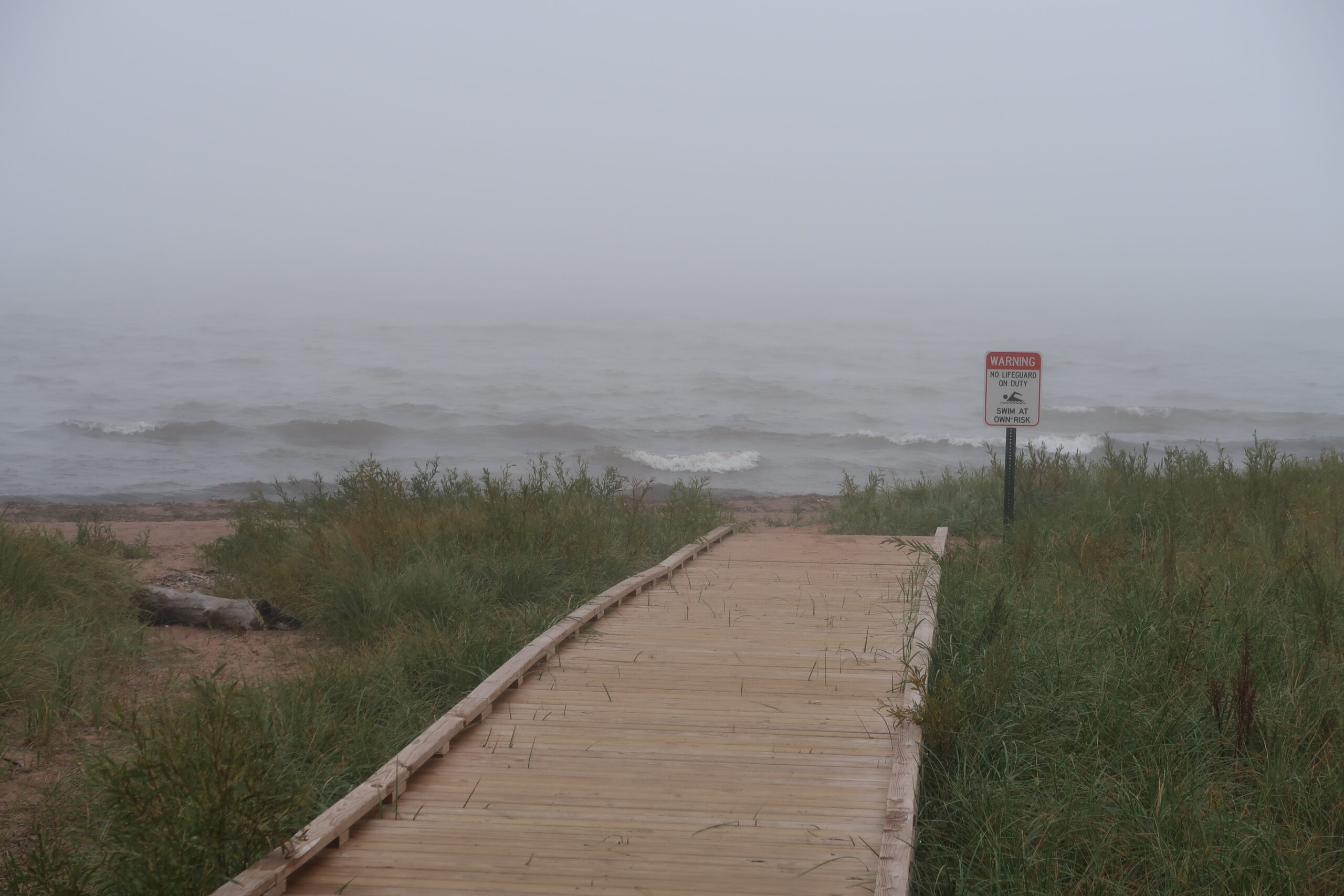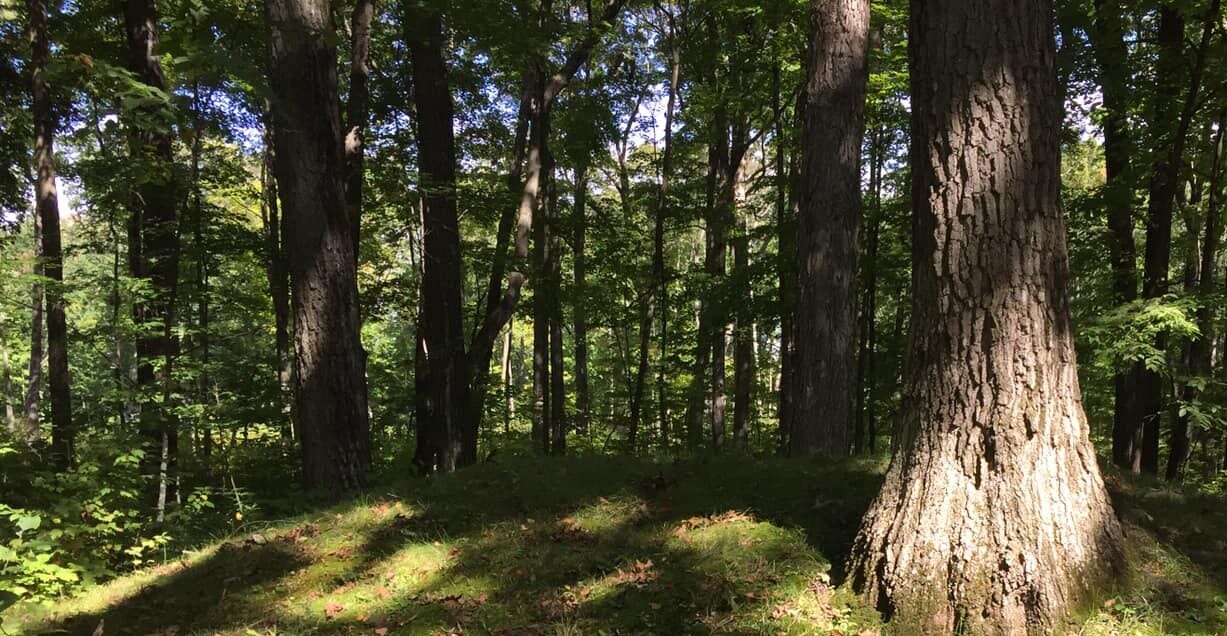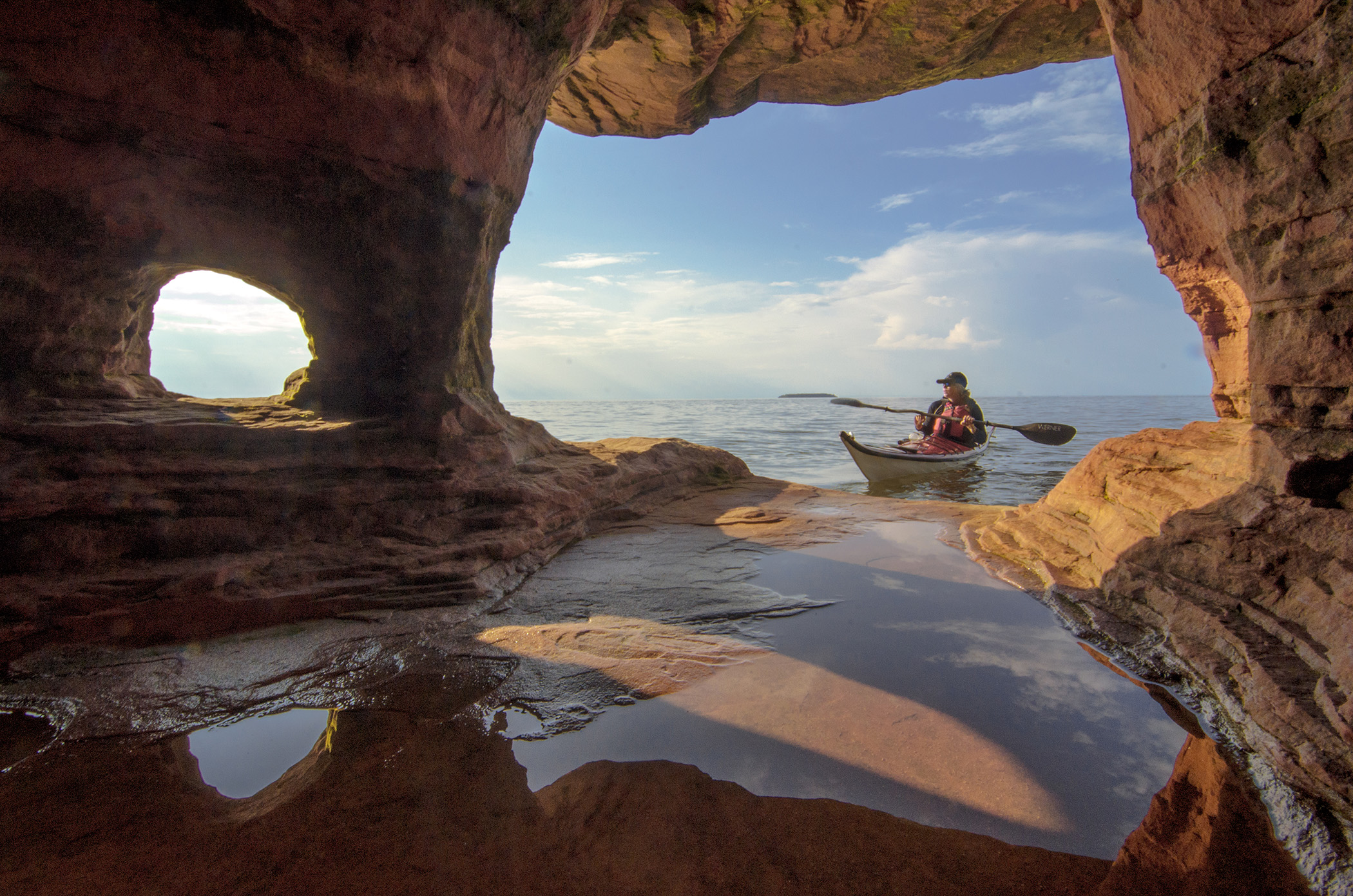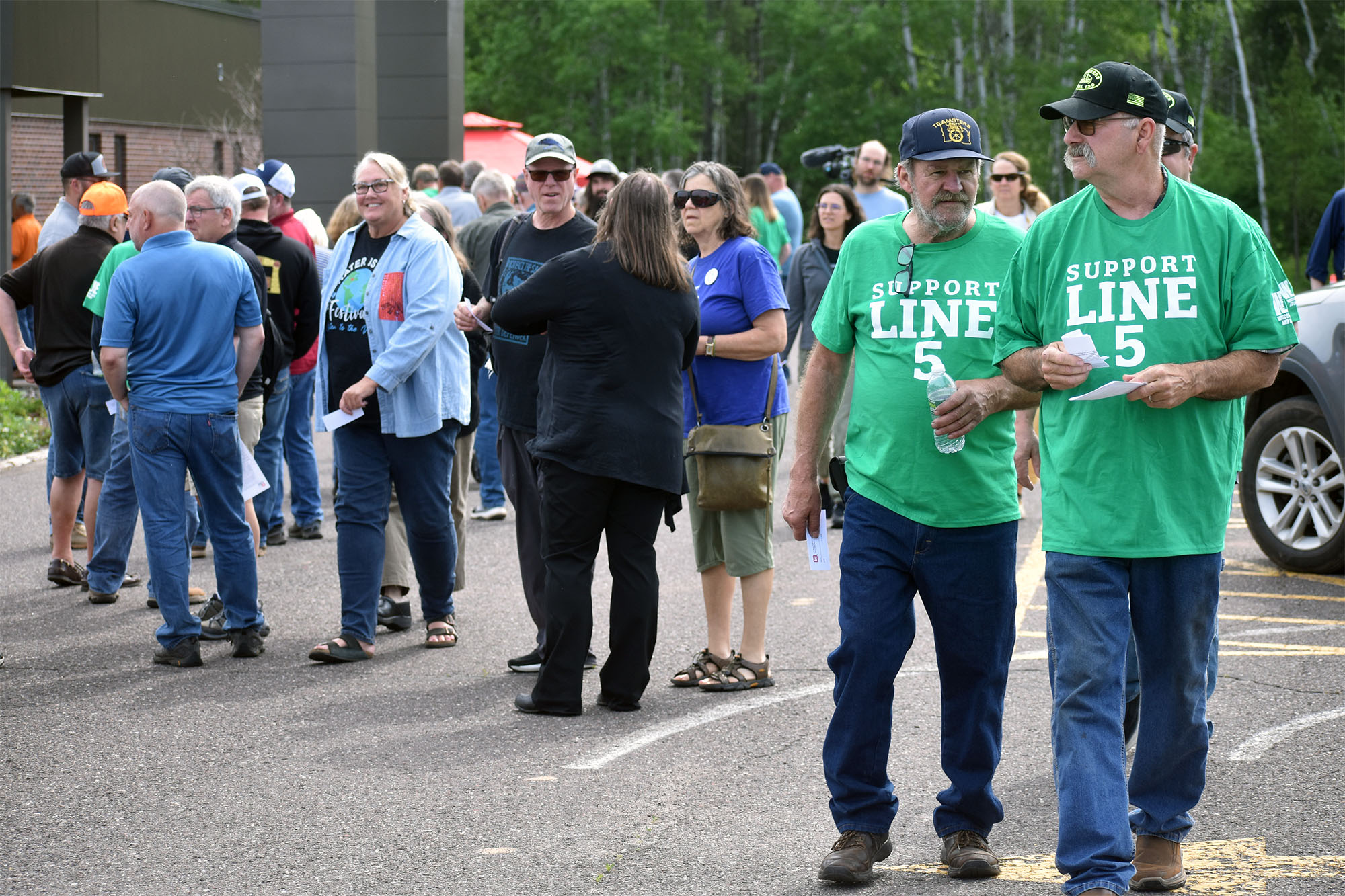State and local leaders gathered at Wisconsin Point Friday to celebrate the completion of a project to restore 150 acres of sensitive coastal habitat along Lake Superior. The work received more than $1.5 million in grants from the Great Lakes Restoration Initiative through the Wisconsin Coastal Management Program.
The project restored sensitive dune habitat and 85,000 sq. ft. of shoreline along with 85 acres of forest. The work also included the consolidation of parking lots while improving ADA accessibility through boardwalks that also reduce impacts to the area from foot traffic.
Wisconsin Point holds significance to many in the Superior area, especially the Fond du Lac Band of Lake Superior Chippewa. Kevin Dupuis, Fond du Lac tribal chairman, said the tribe’s migration story surrounds Wisconsin Point and many of their ancestors were laid to rest there.
Stay informed on the latest news
Sign up for WPR’s email newsletter.
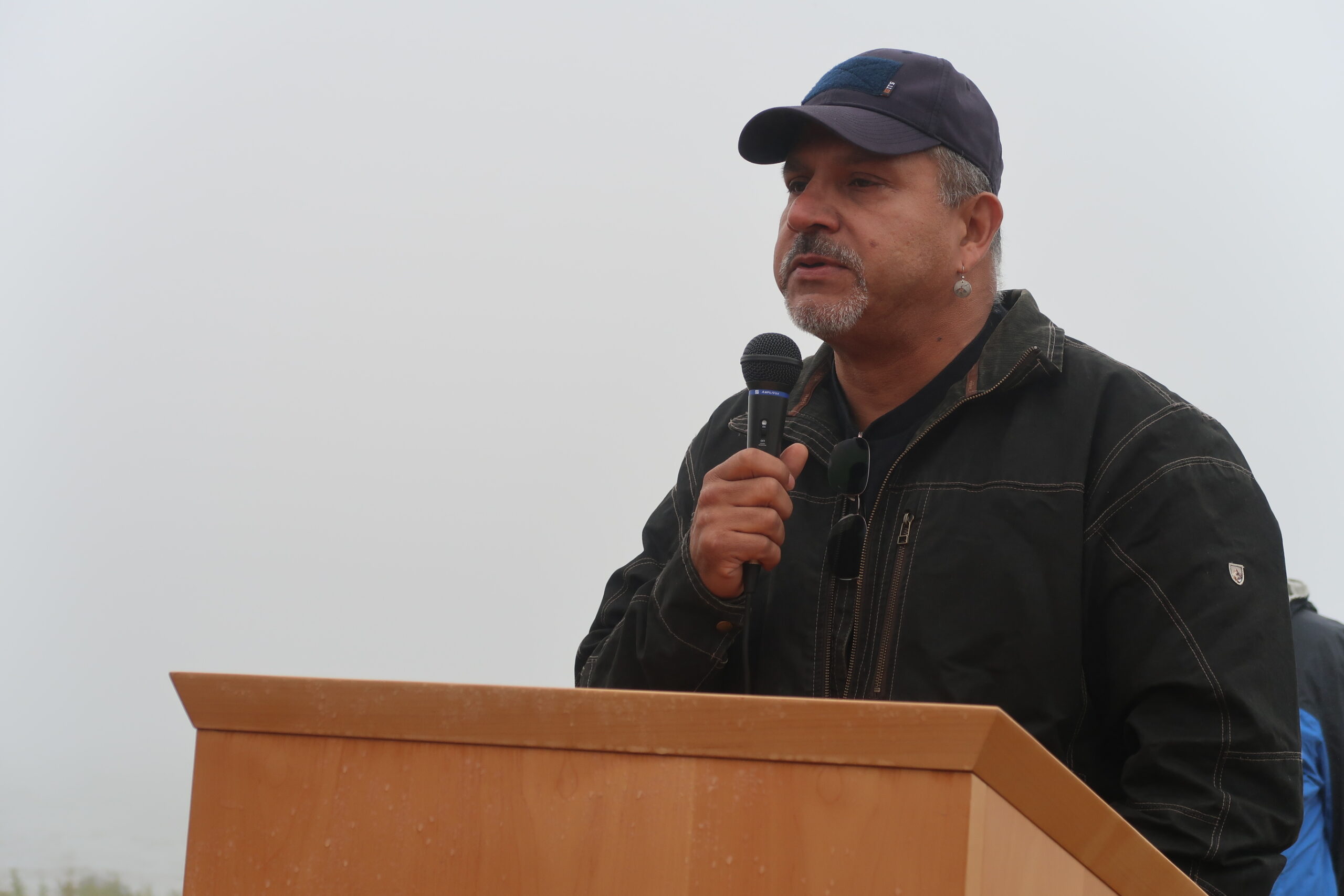
Danielle Kaeding/WPR
“This whole area is Ojibwe country and to take a look at what we have in front of us, as a group or a joint venture to take hold of, and say we want to restore this back to its natural state — you can’t beat that,” said Dupuis.
Dupuis said he would like to see an interpretive center in the future that educates visitors on the history of Wisconsin Point. Superior Mayor Jim Paine said the project protects sensitive dune habitat while opening up access to the area for some who have been unable to visit in the past.
“For years, we weren’t as good a steward as we should have been for this very sacred place,” said Paine. “Thanks to the work of dozens — really hundreds of people — we’ve been able to come together and preserve and restore this place, not just for ourselves and for our visitors, but for generations to come.”
The Wisconsin Coastal Management Program and city of Superior along with state and tribal partners worked on the restoration effort over a three-year period, which involved stabilizing shorelines and removing invasive species. The work also involved installation of pervious pavements and other storm water controls to prevent runoff into the lake.
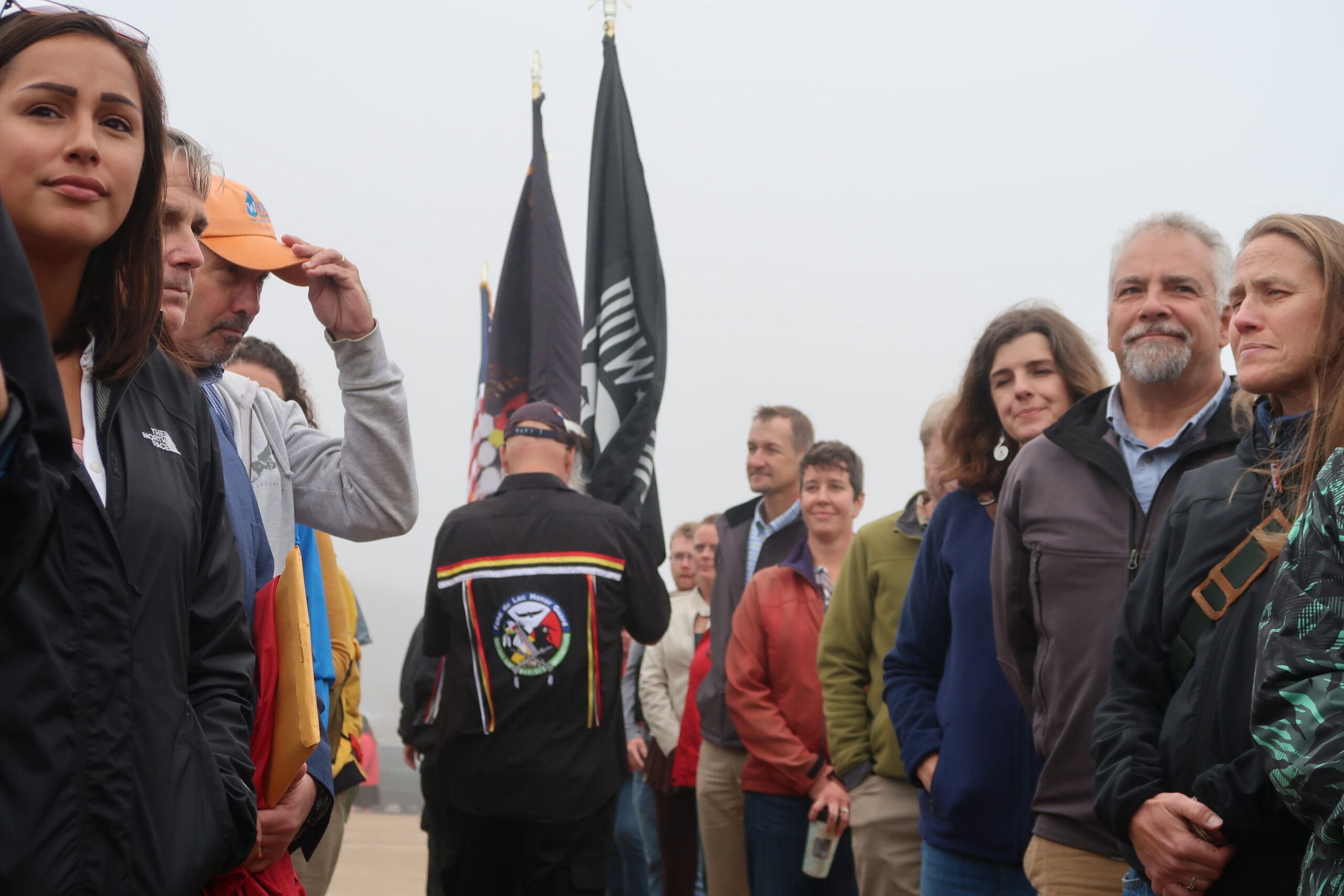
Danielle Kaeding/WPR
The project is part of the St. Louis River Area of Concern, one of 43 sites that were originally identified as the most polluted sites on the Great Lakes.
“It’s a wonderful place to come visit, and we want to enhance that while also restoring and protecting the unique habitats that we have here,” said Matt Steiger, St. Louis River AOC coordinator with the Wisconsin Department of Natural Resources.
The Wisconsin Point restoration project helps remove impairments to fish and wildlife habitat as part of the St. Louis River Area of Concern.
[[{“fid”:”1047991″,”view_mode”:”full_width”,”fields”:{“format”:”full_width”,”alignment”:””,”field_image_caption[und][0][value]”:”%3Cp%3EFederal%2C%20state%2C%20local%20and%20tribal%20officials%20celebrate%20the%20completion%20of%20the%20Wisconsin%20Point%20habitat%20restoration%20project%2C%20including%20Wisconsin%20Lt.%20Gov.%20Mandela%20Barnes.%3Cbr%3E%0A%3Cem%3EDanielle%20Kaeding%2FWPR%3C%2Fem%3E%3C%2Fp%3E%0A”,”field_image_caption[und][0][format]”:”full_html”,”field_file_image_alt_text[und][0][value]”:”State and local leaders celebrate restoration project”,”field_file_image_title_text[und][0][value]”:”State and local leaders celebrate restoration project”},”type”:”media”,”field_deltas”:{“3”:{“format”:”full_width”,”alignment”:””,”field_image_caption[und][0][value]”:”%3Cp%3EFederal%2C%20state%2C%20local%20and%20tribal%20officials%20celebrate%20the%20completion%20of%20the%20Wisconsin%20Point%20habitat%20restoration%20project%2C%20including%20Wisconsin%20Lt.%20Gov.%20Mandela%20Barnes.%3Cbr%3E%0A%3Cem%3EDanielle%20Kaeding%2FWPR%3C%2Fem%3E%3C%2Fp%3E%0A”,”field_image_caption[und][0][format]”:”full_html”,”field_file_image_alt_text[und][0][value]”:”State and local leaders celebrate restoration project”,”field_file_image_title_text[und][0][value]”:”State and local leaders celebrate restoration project”}},”link_text”:false,”attributes”:{“alt”:”State and local leaders celebrate restoration project”,”title”:”State and local leaders celebrate restoration project”,”class”:”media-element file-full-width”,”data-delta”:”3″}}]]
Wisconsin Public Radio, © Copyright 2025, Board of Regents of the University of Wisconsin System and Wisconsin Educational Communications Board.
